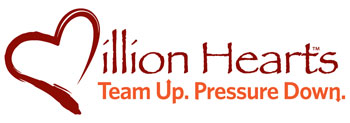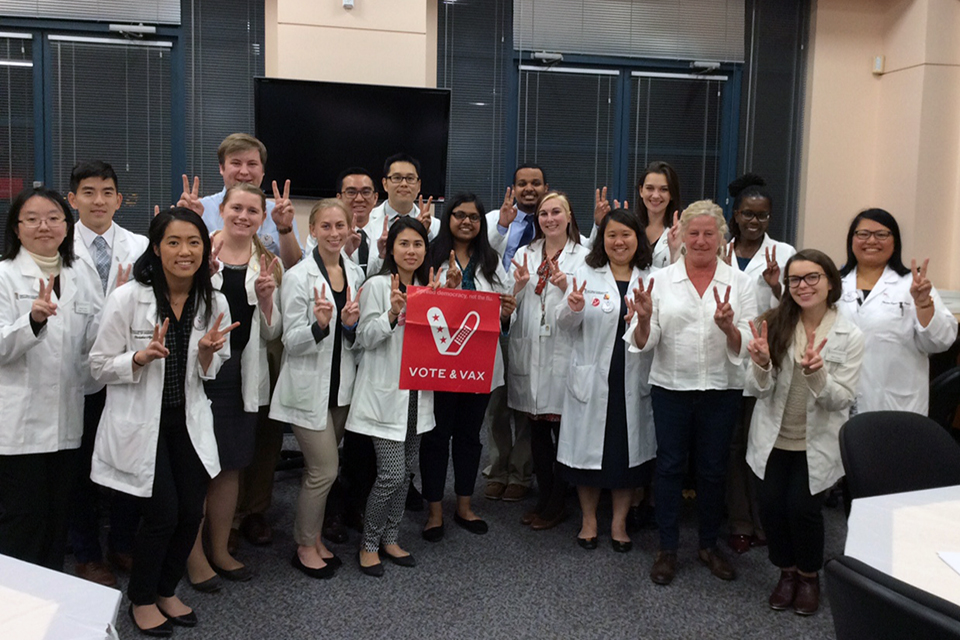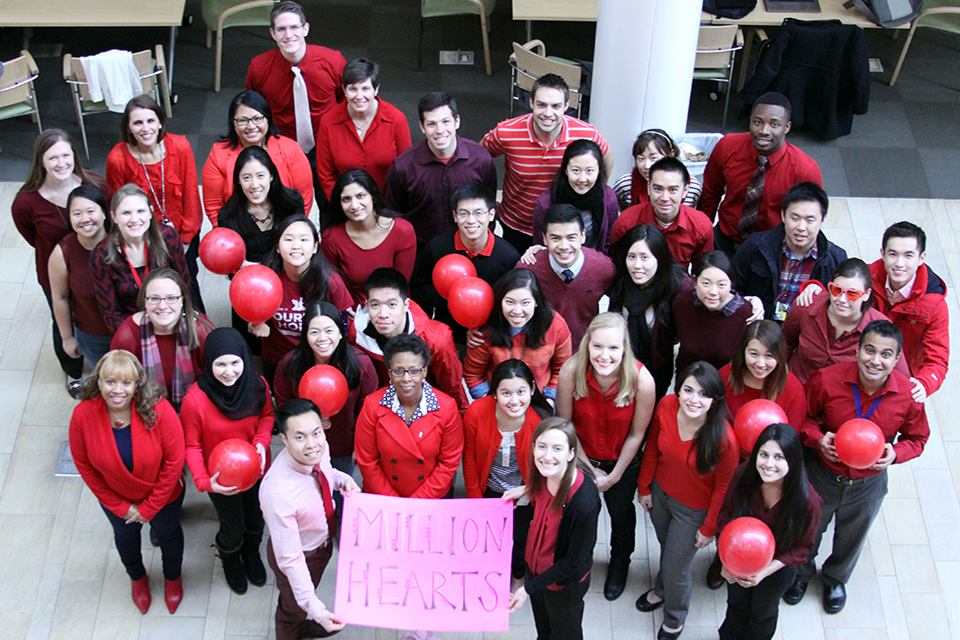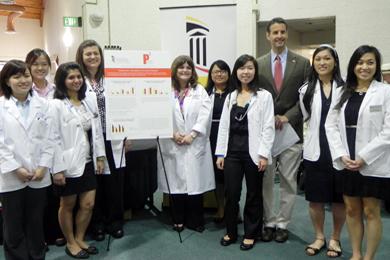UMSOP Joins Million Hearts for “Team Up. Pressure Down.” Pioneer Challenge
Pharmacists, students, and the University community partner with nationwide initiative to lower blood pressure and prevent hypertension through pharmacist-patient engagement.

By Malissa Carroll
December 5, 2012
One in three adults in the United States has high blood pressure. However, the lack of warning signs and symptoms associated with this condition allow it to remain undiagnosed in many individuals, putting them at risk for a heart attack or stroke.
Established by the Department of Health and Human Services (HHS) in September 2011, Million Hearts is a national initiative led by the Centers for Disease Control and Prevention (CDC) and the Centers for Medicare & Medicaid Services (CMS) that brings together communities, health systems, non-profit organizations, federal agencies, and private sector partners to make a lasting impact against cardiovascular disease and prevent one million heart attacks and strokes over five years. The initiative’s newly launched “Team Up. Pressure Down.” program strives to build upon the patient-pharmacist relationship, helping pharmacists work with patients to lower blood pressure and prevent hypertension.
“This campaign is a great way for our students to work together with their community preceptors to engage the patients that they see on a higher level, helping them understand their blood pressure and what impact it has on their health” says Cherokee Layson-Wolf, PharmD, CGP, BCACP, FAPhA, assistant dean for experiential learning at the University of Maryland School of Pharmacy. “It provides great resources for students to share with their rotation sites to educate pharmacists and patients on the campaign.”
Team Up. Pressure Down. partners with organizations from across the public and private health sectors to offer free tools and resources to help patients work with their pharmacists to manage high blood pressure and track and take their medications as directed between doctor visits. The University of Maryland School of Pharmacy’s Patients, Pharmacists, Partnerships (P3) Program™ will partner with the national program by providing information about the initiative to its specially trained pharmacists and collecting data on the impact of pharmacists’ interventions developed as part of this initiative.
“This initiative is critical in highlighting the impact that pharmacists, particularly our Maryland P3 Program pharmacists, can have on controlling blood pressure, increasing adherence to medications, decreasing and preventing side effects, and reducing mortality related to high blood pressure and other medical conditions,” says Magaly Rodriguez de Bittner, PharmD, CDE, FAPhA, professor and chair of the Department of Pharmacy Practice and Science and director of the Maryland P3 Program. “We are very excited about participating in this initiative and partnering with CDC and Millions Hearts for this initiative.”
In addition to involving pharmacists in the program, members of Operation Heart from the American Pharmacists Association-Academy of Student Pharmacists (APhA-ASP) at the School of Pharmacy will organize the launch of a week-long campaign to educate pharmacy students about the Million Hearts initiative. The campaign will launch during American Heart Month in February 2013 and feature a number of events highlighting heart disease prevention, culminating with a campus-wide health fair.
Students will also help engage preceptors in the program using Team Up. Pressure Down. toolkits that allow students, working with their preceptors, to design an event for the community pharmacy setting to help educate patients about the importance of medication adherence to blood pressure medications.
“Students and pharmacists from the University of Maryland School of Pharmacy will serve as a resource to other community pharmacists as they begin to incorporate Team Up. Pressure Down. materials into their current practice,” says Layson-Wolf. “We look forward to engaging the pharmacy community in Maryland and educating patients about the importance of maintaining a healthy blood pressure.”



